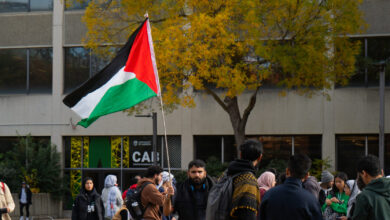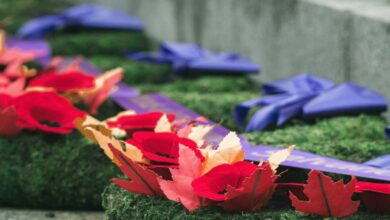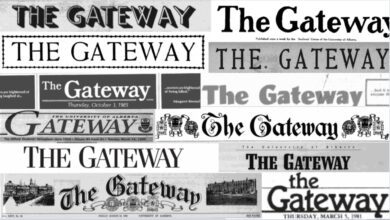Afterlife Asked and Answered
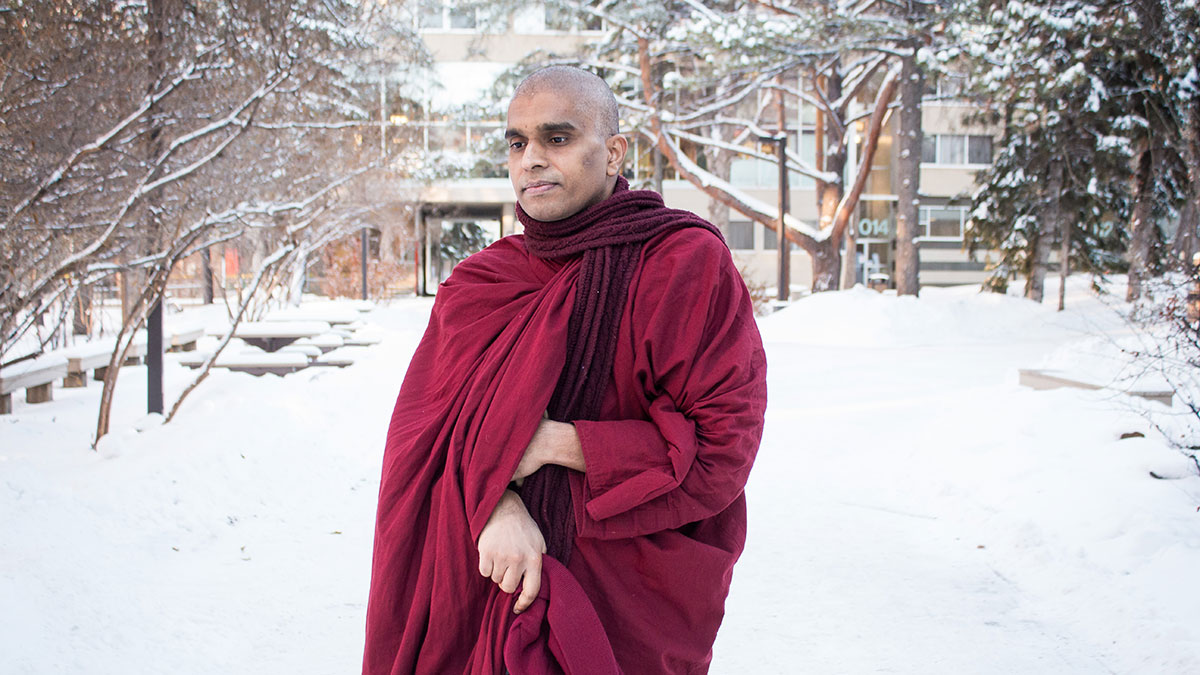 Christina Varvis
Christina VarvisThe U of A Chaplains Association offers spiritual guidance and support to 14 different religions. We spoke to three chaplains on one of the greatest unknowns out there: what happens after we die?
Matthumagala Chandananda, Buddhist Chaplain at the University of Alberta
How do you define death?
In Buddhism, death is twofold: one is momentary death, another one is conventional death. To understand this momentary death, Lord Buddha, the awakened one, invited us to see that everything in the universe is flickering, just as fluorescent lights flicker about 120 times per second. Our train of consciousness also flickers at a much faster speed. Therefore, in every moment, we take birth and suffer death. On the other hand, conventional death is a kind of illusion. Due to aging or a sickness, a time comes when this flickering train of consciousness cannot be supported by this body any longer.
Do you believe that there is a life after death for humans — an afterlife?
I do not believe in a life after death. I have begun to see that the conventional death could not be the end of this train of consciousness. If we explore what happens in this particular moment, we will be able to understand what happens after death. We always try to sort of fantasize, to live in the future or in the past, and we come to some confused state. Unless you explore what happens in this particular moment with mindfulness, it is unlikely that you can understand what really happens after the point of death.
Do you think that humans, after passing away, could return to this life?
Yes, it can happen and as some studies suggest, some people can even remember their past lives. I think this concept can also explain why we sometimes feel a great sense of belongingness or aversion with
some people, even at the very first sight.
What are your thoughts on near-death experiences? Can they be seen as verification of life after death?
Some of those experiences like seeing a divine abode or darkness can be indicators of their next dwelling, while many other observations might not be worth anything more than hallucinations. But one very important point in Buddhism is, the heavenly life and hell life is not eternal. There is nothing eternal in Buddhism.
Are you afraid of dying and do you think about it often?
With my practice of meditation, I think about death quite often and I am becoming increasingly less and less afraid of death. I am afraid of being born again, because when we sign up for a new life,
we also sign up for an untold amount of suffering. I have seen that when I’m not mindful, I’m afraid of death.
Richard Reimer, Lutheran Chaplain at the University of Alberta
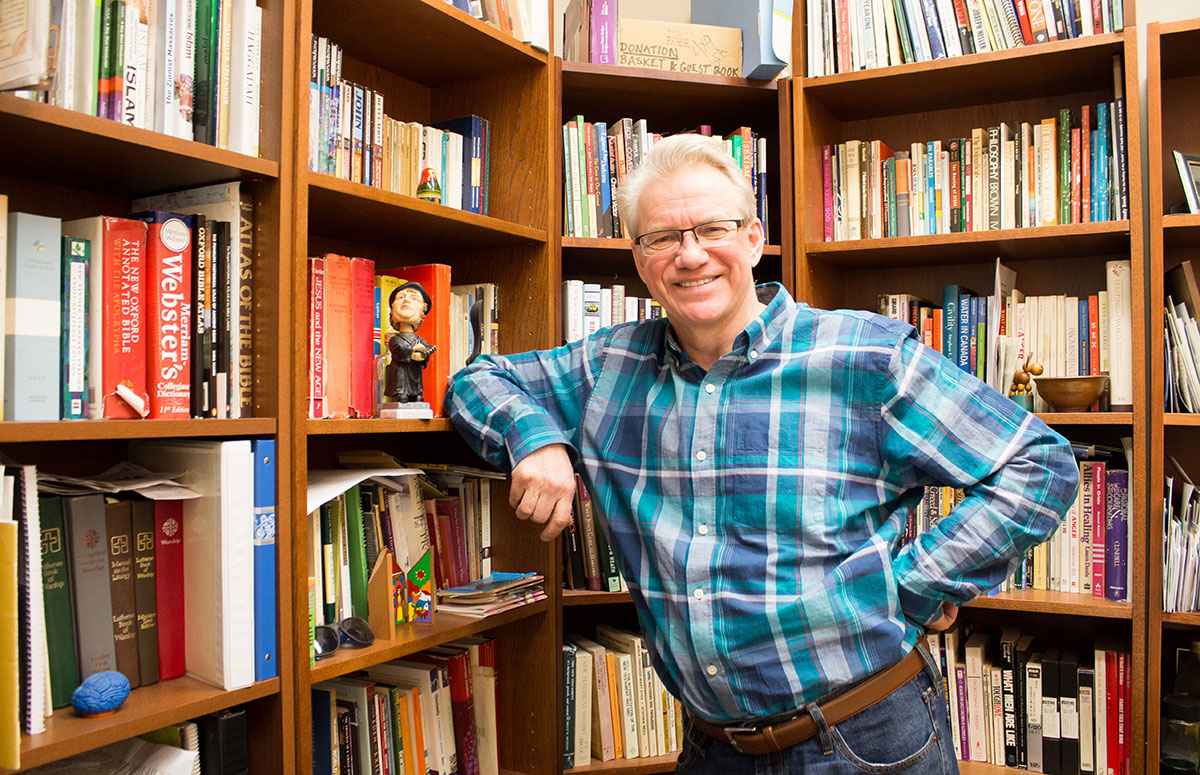
How do you define death?
Well, physical death is defined medically as the cessation of brain activity. But there’s another kind of death I think, and that is a kind of soul death. We lose the spirit of living and in that sense, maybe it’s a consequence of being beaten down, giving up, or giving ourselves over to destructive impulses, powers.
Do you believe that there is a life after death for people — an afterlife?
Yes, but I don’t see it as a discontinuance. If heaven isn’t about some other place, but it’s about a dimension of here and now, then what I believe is that there is a continuity between that heaven that
we experience now and the life to come or the afterlife. The way some persons have described it is that we move from the near presence of God to the nearer presence of God.
Do you think that people, after passing away, could return to this life?
I believe in the resurrection of a body. Christians too often have been characterized as believing in the immortality of the soul. But no, Christians are grounded in the Hebrew story where God animates a
body and that body is God’s good creation. But reincarnation, that’s more of the platonic to me. I know some people that believe that, but I don’t.
What are your thoughts on near-death experiences? Can they be seen as a verification of life after death?
I don’t see them as proof, if you will, of life after death. To me, the proof is in the walk that I’m on already. It’s in my experience of God in the present, and my conviction, my faith that’s not going to cease, that’s only going to continue in a more fully realized way. The proof is in the lived experience, day to day.
Are you afraid of dying and do you think about it often?
I think, to be honest, I’m afraid of dying painfully. I was diagnosed with stage-four lung cancer five years ago and why I’m still here is a kind of mystery. I just had my 65th round of chemotherapy. I think that really the big fear to overcome is the fear of really living, and by that I mean having the courage to engage the things that my faith calls me to engage. I’m consumed
with engaging in this life, and a big part of that is my faith, because I don’t see heaven as divorced from this life. Heaven isn’t an escape patch. It’s a dimension of this life and we can join Jesus in celebrating the goodness of creation and grieve the ways in which it’s broken, and be part of His work to redeem it.
Shelby Haque, Muslim Chaplain at the University of Alberta
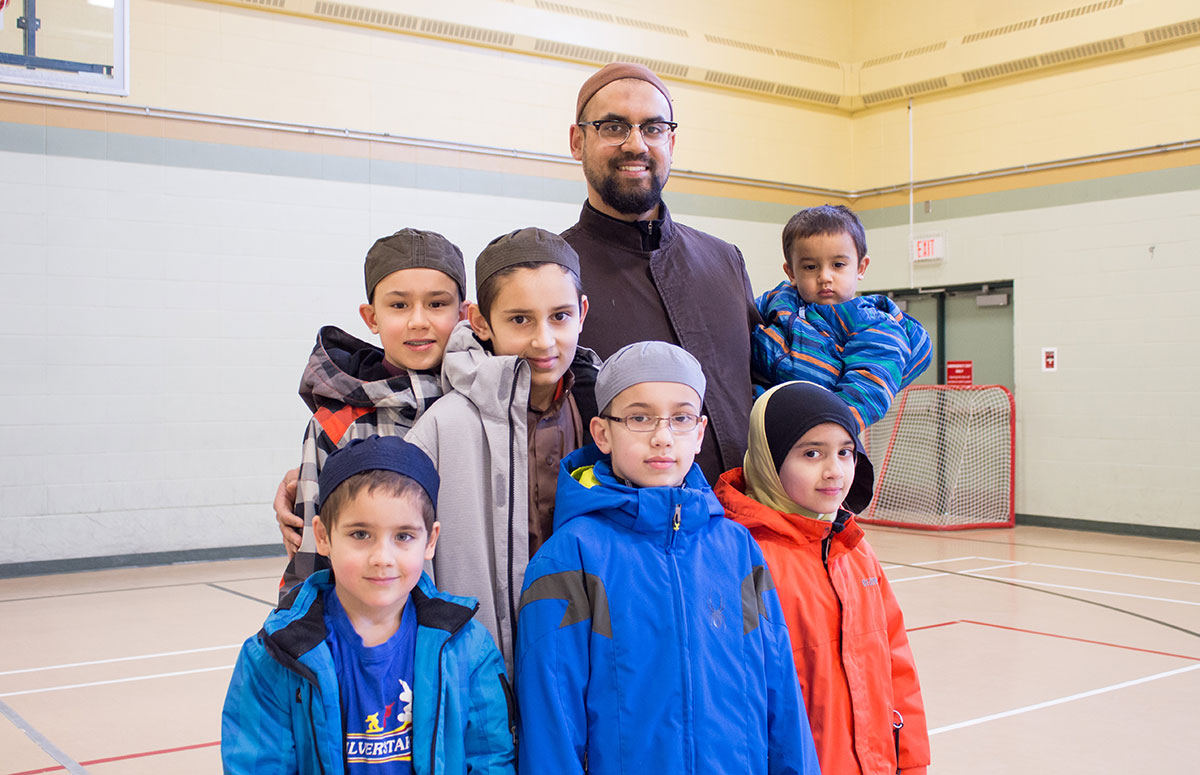
How do you define death?
Death, from a physiological point of view, is when the processes of life stop at a cellular level. But the Prophet of Muhammad said, when people die, they wake up. In other words, it’s the start of what we would consider the real life or the life of eternity.
Do you believe that there is a life after death for humans — an afterlife?
Yeah, without doubt. From the Muslim point of view, there absolutely is a life after death, and that life begins from the moment you go into the grave, in fact. The life of this world is described as play and amusement, but when the life of the hereafter comes, that’s the real life. It’s eternal life.
Do you think that humans, after passing away, could return to this life?
In the Quran, there are specific verses that mention that people will die and they will see the punishment and they’ll ask God to come back to Earth just even for a moment so that they could just do some good deed, that they could come to the Day of Judgement with some good deed, and they won’t be allowed to do that. You get one chance. You either use it or you lose it.
What are your thoughts on near-death experiences and can they be seen as verification of a life after death?
I don’t know that it’s a verification or a refutation for life after death, but I do believe that there are multiple ways of perceiving the world and that we only sort of know about, or we’re only kind of consciously aware of certain of them. Maybe there is some other way of perceiving, like there’s things that we could perceive about the world that we can’t actually physically see.
Are you afraid of dying and do you think about it often?
I’ll be honest with you — I think about death all the time. I work as an emergency room physician, so I see death and I deal with families who have to deal with the death of loved ones, and that’s what I do for a living, both for my job as a chaplain and my job as a physician. I don’t know if I’m afraid of death. I mean, obviously you love the people that you’ve left behind, but I always try to live my life in a way that I have no regrets.


